Indigenous Governance Database
dispute resolution
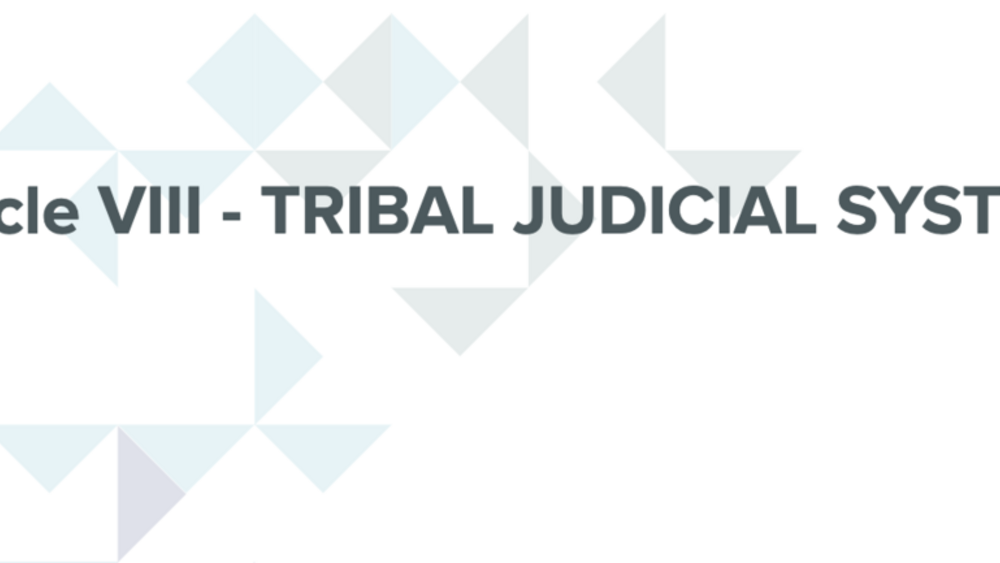
Ione Band of Miwok Indians: Judiciary Functions/Dispute Resolution Excerpt
Article VIII - TRIBAL JUDICIAL SYSTEM The judicial power ofthe Tribe shall be vested in the Tribal Council until such time as Tribal court(s) or other appropriate forums may from time to time be established by ordinance(s) for that purpose. Said ordinance(s) shall ensure the impartiality and…
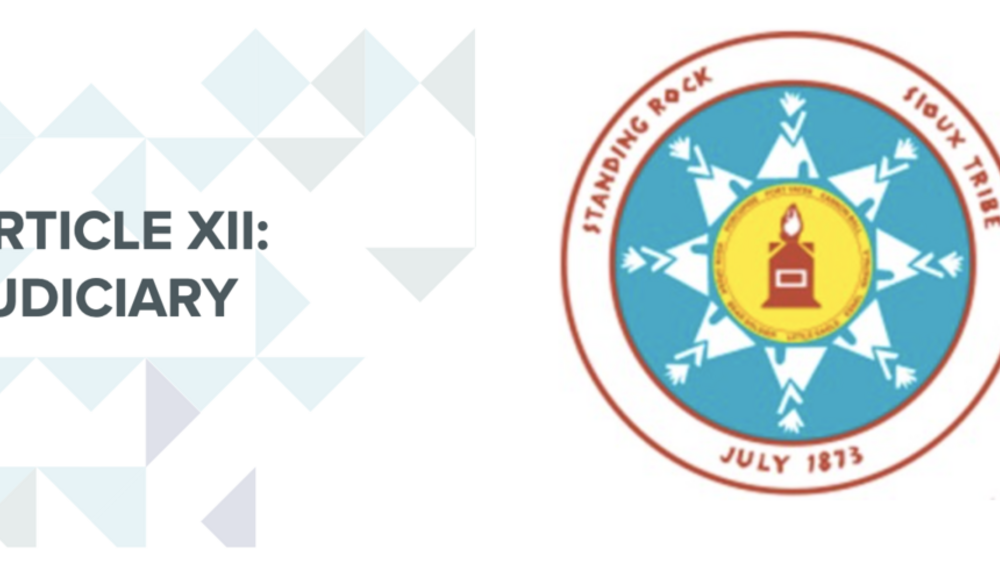
Standing Rock Sioux Tribe: Judiciary Functions/Dispute Resolution Excerpt
ARTICLE XII: JUDICIARY The judicial power of the Tribe shall be vested in one Supreme Court and one Tribal Court. The Judges of both the Supreme Court and the Tribal Court shall initially be appointed by a two-thirds majority vote of the Tribal Council to serve an initial term of…
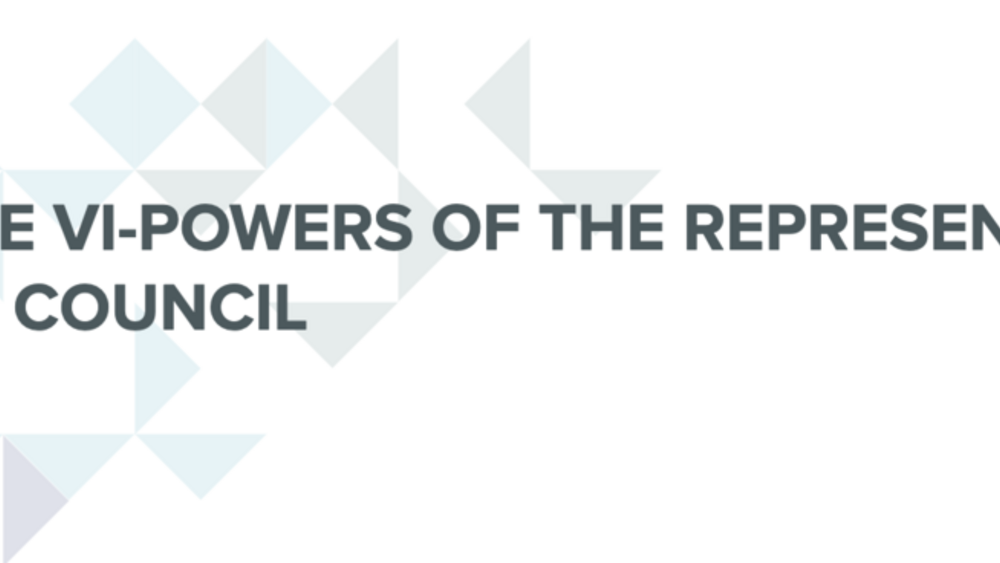
Jicarilla Apache Tribe: Judiciary Functions/Dispute Resolution Excerpt
ARTICLE VI-POWERS OF THE REPRESENTATIVE TRIBAL COUNCIL SECTION 4. Peace and Order.-The Council may make regulations, subject to review by the Secretary of the Interior, to protect the peace, safety, morals, and general welfare of the reservation, to provide a means of settling disputes, and to…
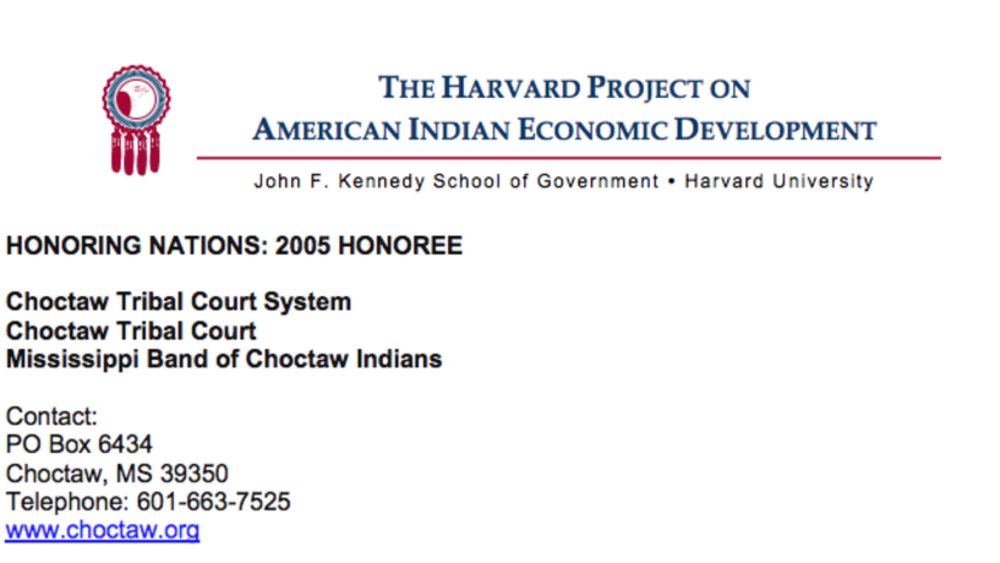
Choctaw Tribal Court System
Self-determination is the guiding principle behind all of the government initiatives undertaken by the Mississippi Band of Choctaw Indians. This nation has created a vibrant economy while investing resources into the preservation of Choctaw language and culture. At the heart of its success is its…
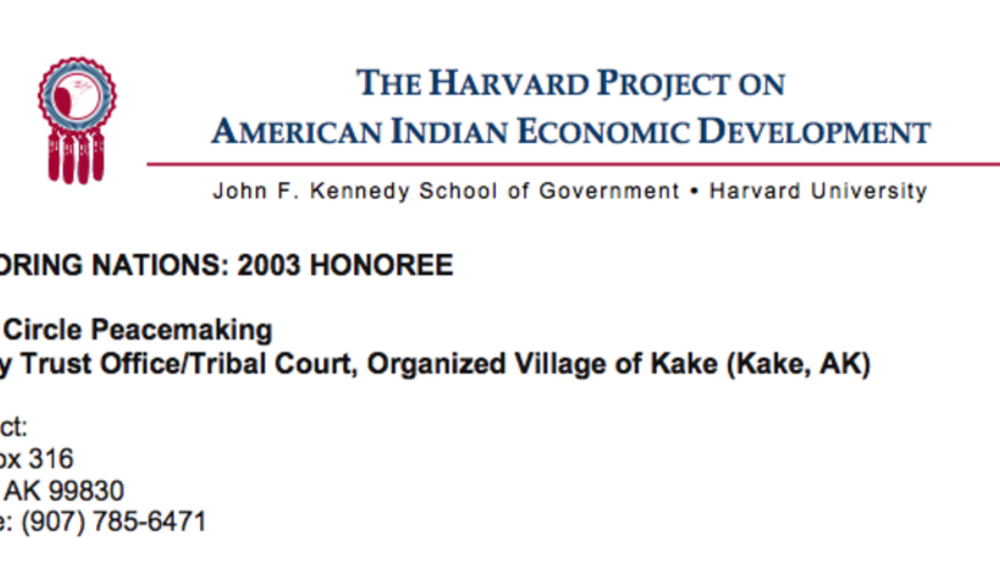
Kake Circle Peacemaking
Restoring its traditional method of dispute resolution, the Organized Village of Kake adopted Circle Peacemaking as its tribal court in 1999. Circle Peacemaking brings together victims, wrongdoers, families, religious leaders, and social service providers in a forum that restores relationships and…
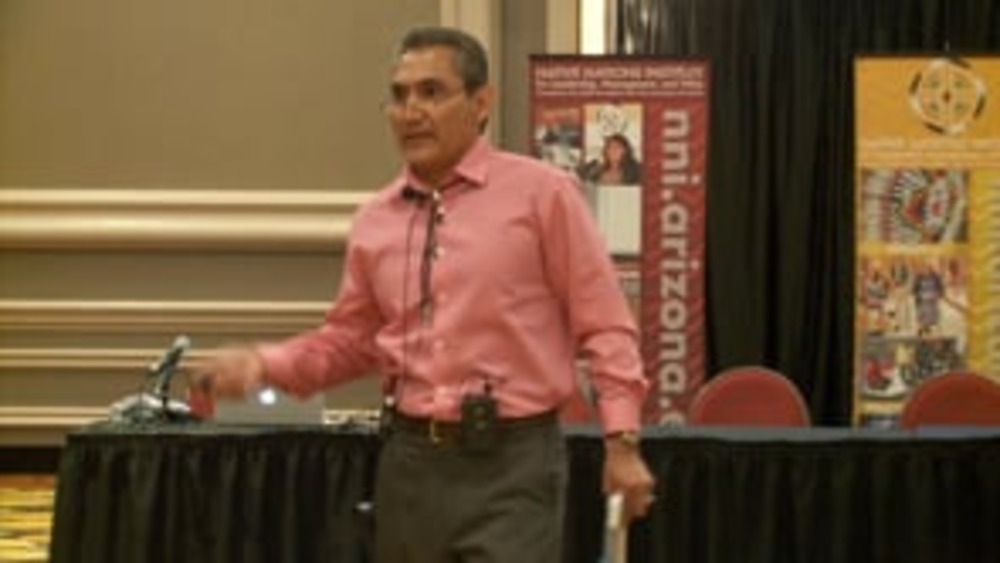
Joseph Flies-Away: Knowing, Living and Defending the Rule of Law
Joseph Flies-Away (Hualapai), Associate Justice of the Hualapai Nation Court of Appeals, discusses the importance of Native nations building and living a sound, culturally sensible rule of law -- through constitutions, codes, common law and in other ways -- that everyone in those nations knows,…
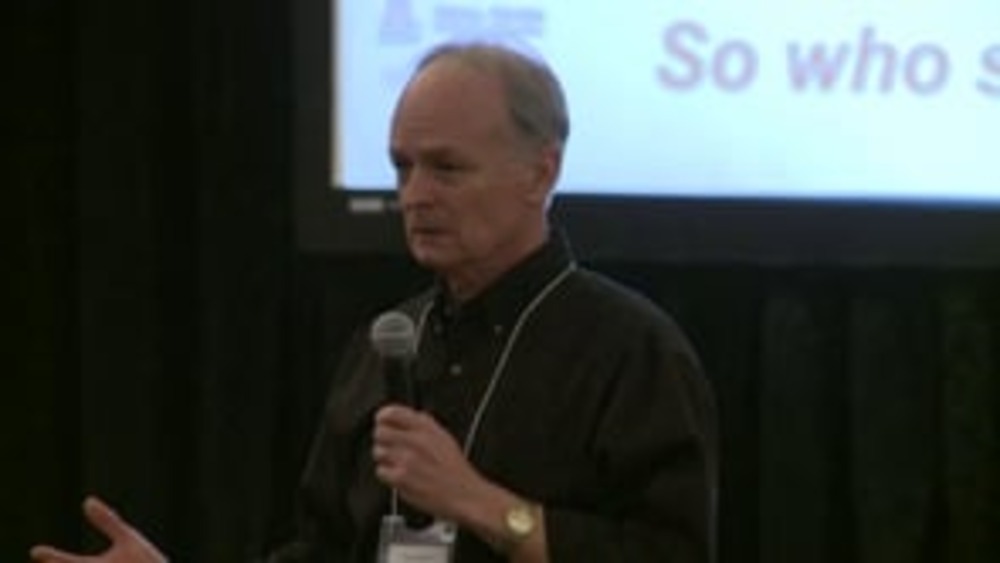
Stephen Cornell: The Task of Reclaiming Self-Governance (Presentation Highlight)
In this highlight from the presentation "Key Things a Constitution Should Address: 'Who Has Responsibility for What?'," NNI's Stephen Cornell provides an overview of the fundamental questions that Native nations must ask themselves as they reclaim control over and then redesign their governance…
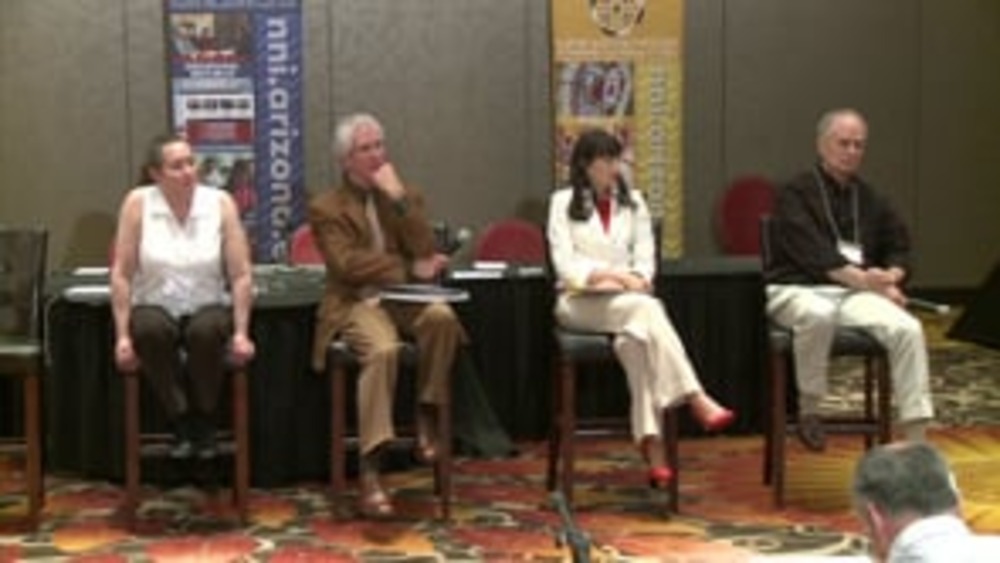
Constitutions and Constitutional Reform - Day 1 (Q&A)
Presenters and moderators from the first day of NNI's "Tribal Constitutions" seminar gather to field questions from seminar participants on a variety of topics ranging from dual citizenship to the relationship between a nation's constitution and its economic development environment.
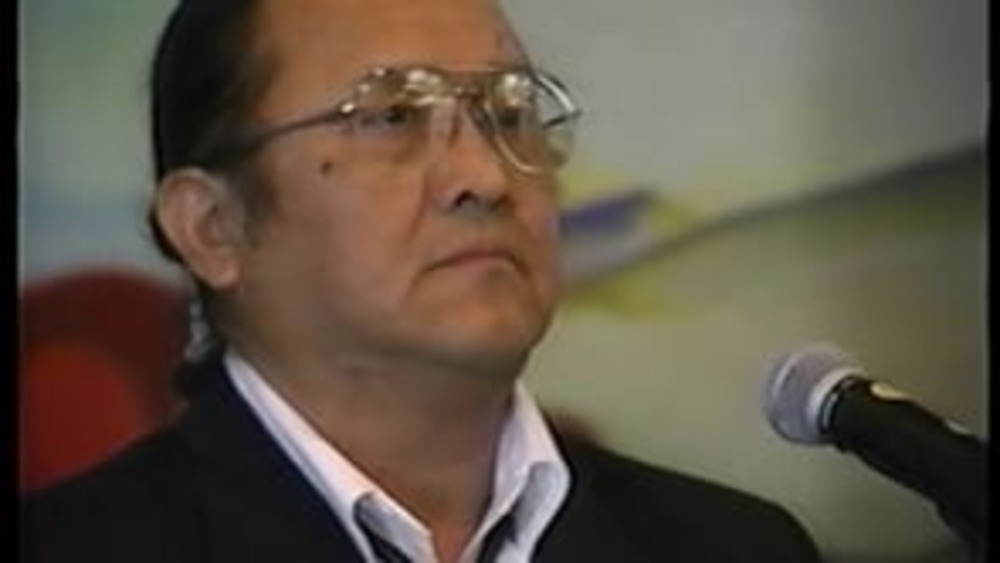
Honoring Nations: Robert Yazzie: The Navajo Nation Judicial Branch
Chief Justice Emeritus Robert Yazzie of the Navajo Nation Supreme Court talks about the Navajo Nation Judicial Branch's application of Navajo common law in its jurisprudence as an example of the importance of Indigenous cultural values and common law into the governance systems of Native nations.
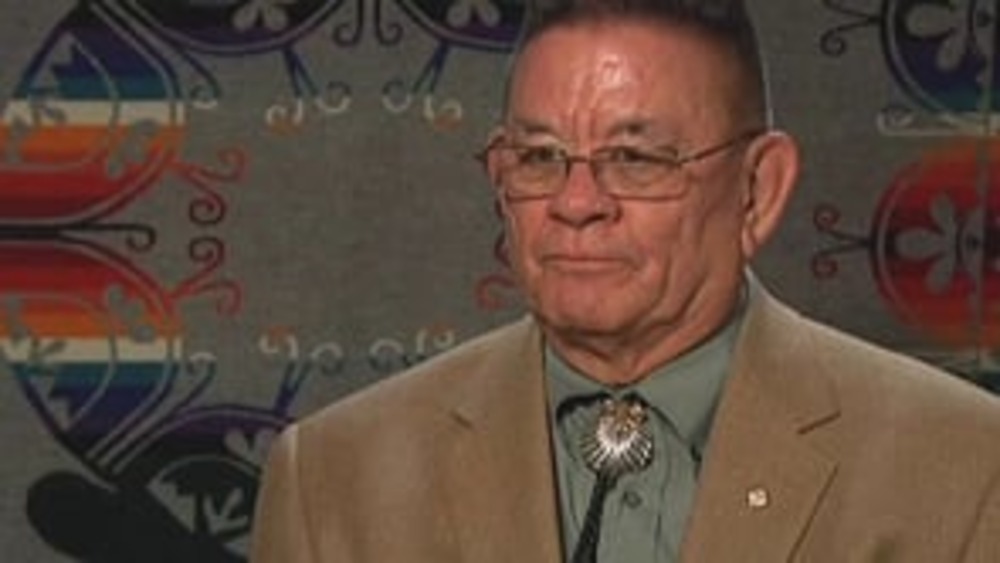
From the Rebuilding Native Nations Course Series: "What Strong, Independent and Legitimate Justice Systems Require"
Native leaders and scholars discuss what Native nations need to do to create strong, independent and culturally legimate justice systems.
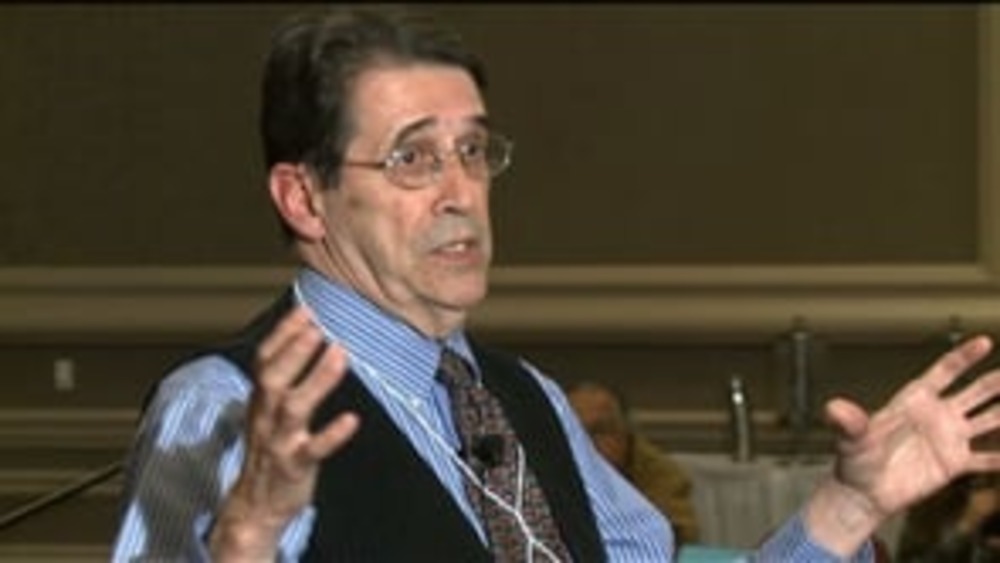
Frank Pommersheim: A Key Constitutional Issue: Dispute Resolution
University of South Dakota Professor of Law Frank Pommersheim discusses the key constitutional issue of dispute resolution and presents three cases demonstrating how tribes are endowing their constitutions with legitimacy through the careful, thoughtful resolution of disputes.
Milton Bluehouse, Jr.: Introduction to Managing Environmental Conflict
U.S. Institute for Environmental Conflict Resolution Program Manager Milton Bluehouse, Jr. discusses the challenges to environmental conflict resolution specifically and dispute resolution generally, and offers some proven strategies for Native nations and other governments to overcome…
Honoring Nations: Hilda Faye Nickey: The Mississippi Choctaw Tribal Court System
Mississippi Choctaw Chief Justice Hilda Faye Nickey discusses the Choctaw tribal court system, and provides an overview of Choctaw's youth court and how it works to educate Choctaw youth about Choctaw ethics and core values in order to set them on the right path.
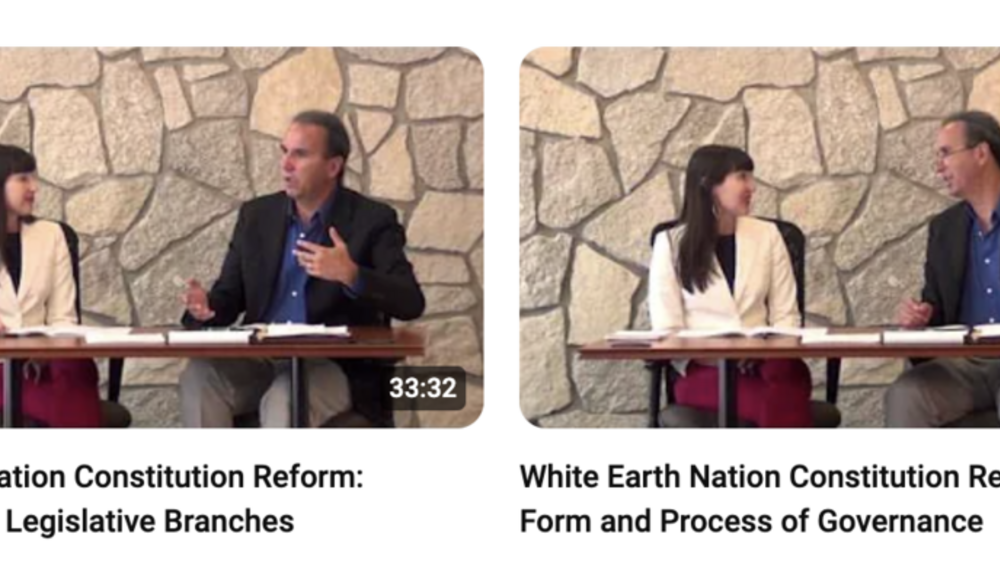
Videos: White Earth Nation Constitutional Reform
As part of its ongoing process of educating the White Earth people and others about White Earth's proposed new constitution, White Earth Nation's Constitutional Education Team produced several videos for White Earth citizens to view in order to gain a better understanding of the key governance…
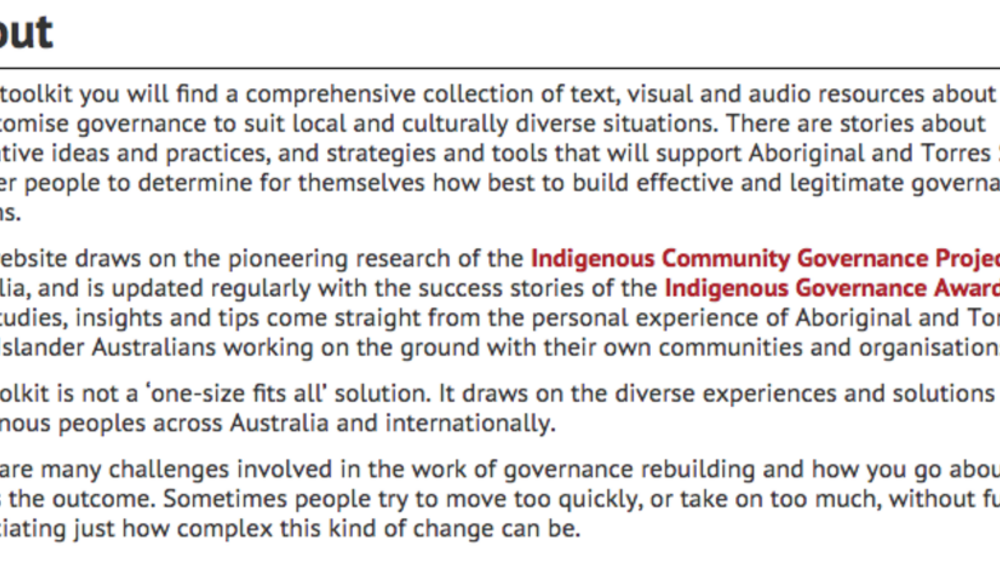
Indigenous Governance Toolkit
The Indigenous Governance Toolkit is an online resource developed for Indigenous nations, communities, individuals and organisations searching for information to build their governance. It covers all the basics — your rules, values, culture, membership, leadership, and decision making — and has…
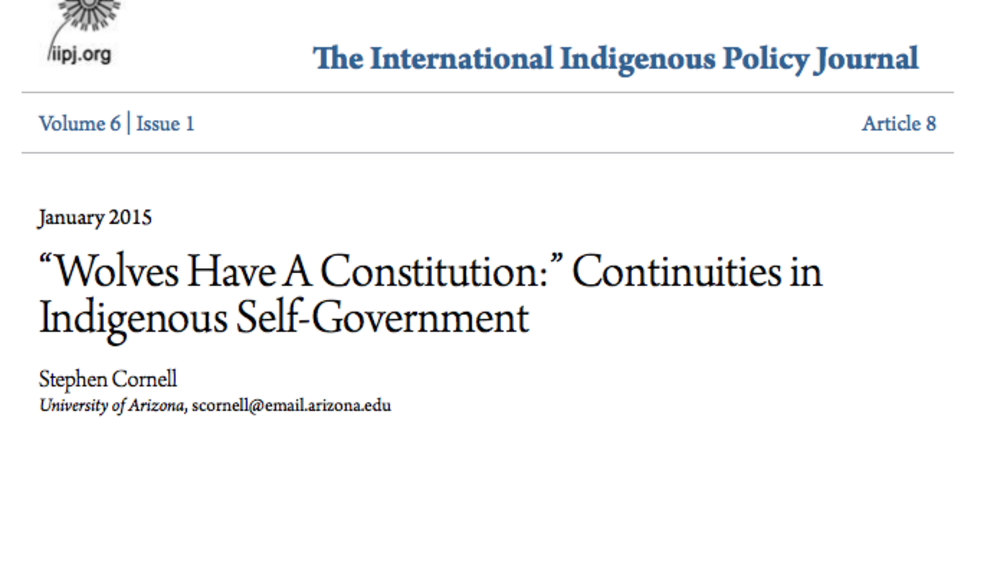
Wolves Have A Constitution: Continuities in Indigenous Self-Government
This article is about constitutionalism as an Indigenous tradition. The political idea of constitutionalism is the idea that the process of governing is itself governed by a set of foundational laws or rules. There is ample evidence that Indigenous nations in North America–and in Australia and New…
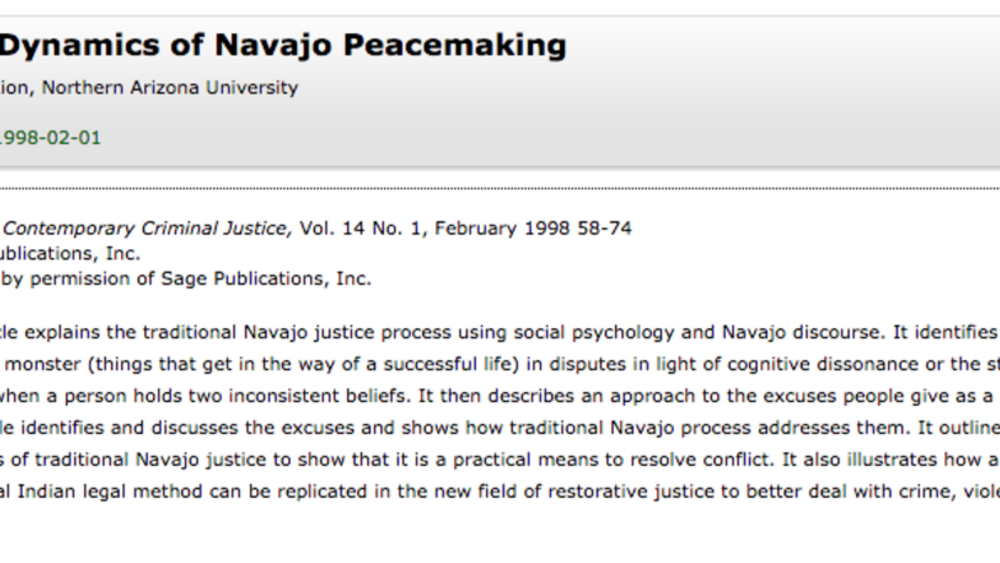
The Dynamics of Navajo Peacemaking
This article explains the traditional Navajo justice process using social psychology and Navajo discourse. It identifies the nayee or monster (things that get in the way of a successful life) in disputes in light of cognitive dissonance or the state of tension when a person holds two inconsistent…
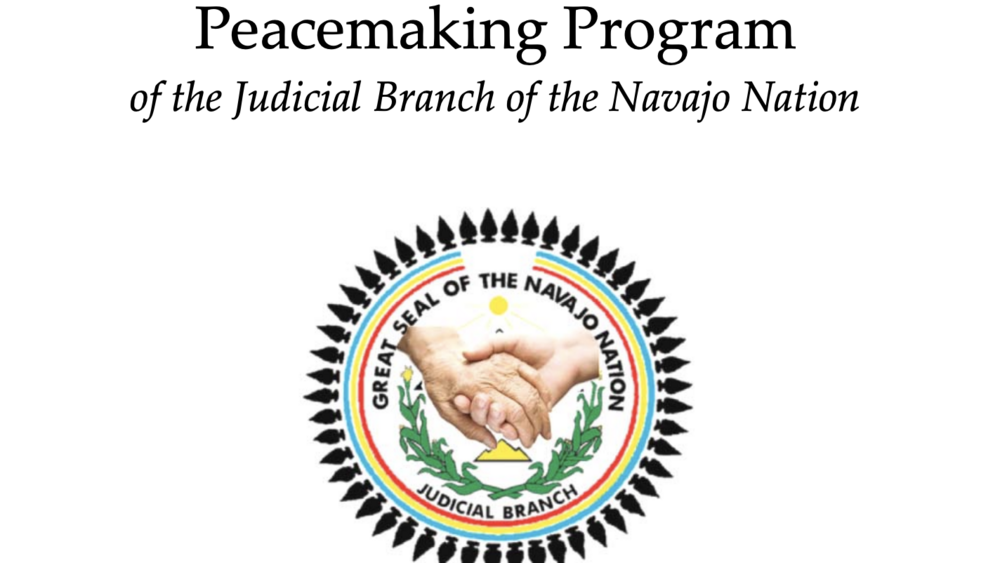
Peacemaking Program of the Judicial Branch of the Navajo Nation
The concept of peacemaking or hózh̨óji naat’aah goes back to the beginning of time and is embedded in the journey narrative. In fact, according to the journey narrative, the Holy People journeyed through four worlds. In the course of their journey, they came upon many problems, which were either…
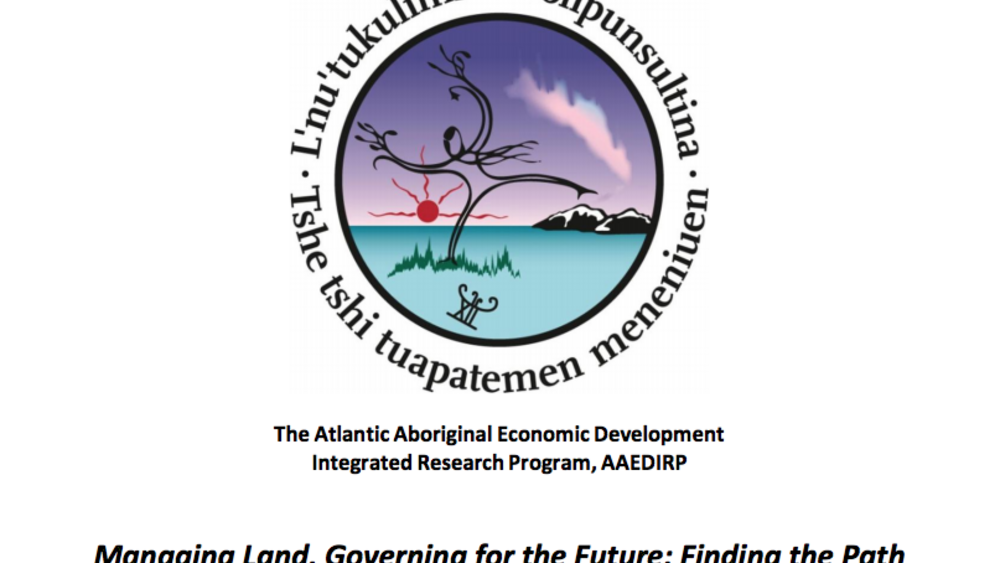
Managing Land, Governing for the Future: Finding the Path Forward for Membertou
This in-depth, interview-based study was commissioned by Membertou Chief and Council and the Membertou Governance Committee, and funded by the Atlantic Aboriginal Economic Development Integrated Research Program to investigate methods by which Membertou First Nation can further increase its…
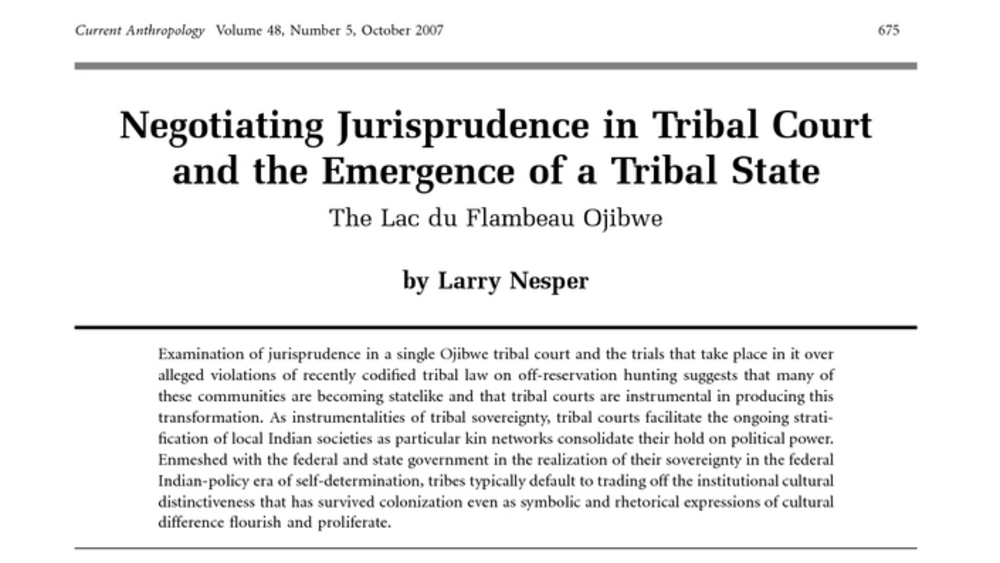
Negotiating Jurisprudence in Tribal Court and the Emergence of a Tribal State: The Lac du Flambeau Ojibwe
The interaction between American Indian activism and changes in federal Indian policy since the 1960s has transformed American Indian tribes from largely powerless and impoverished kinshipâ€based communities into neocolonial statelike entities (Wilkinson 2005).1 Representing themselves as distinct…
